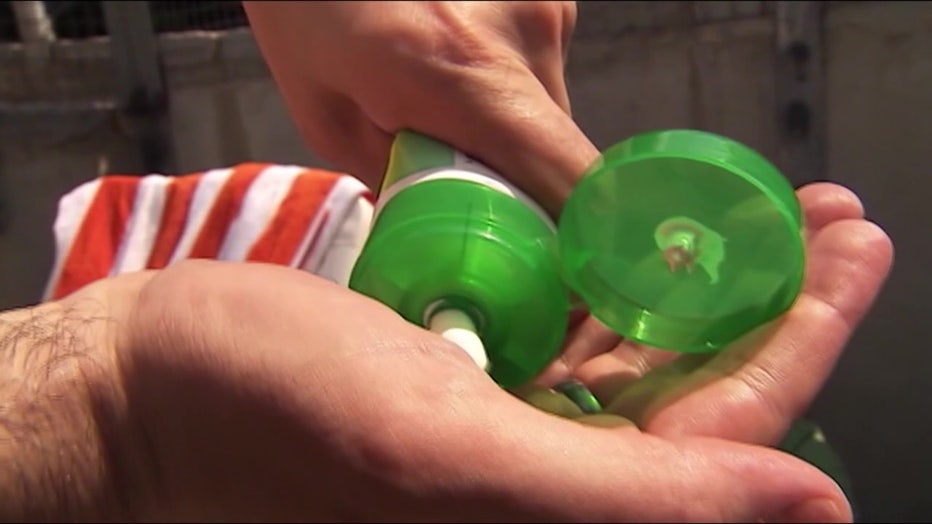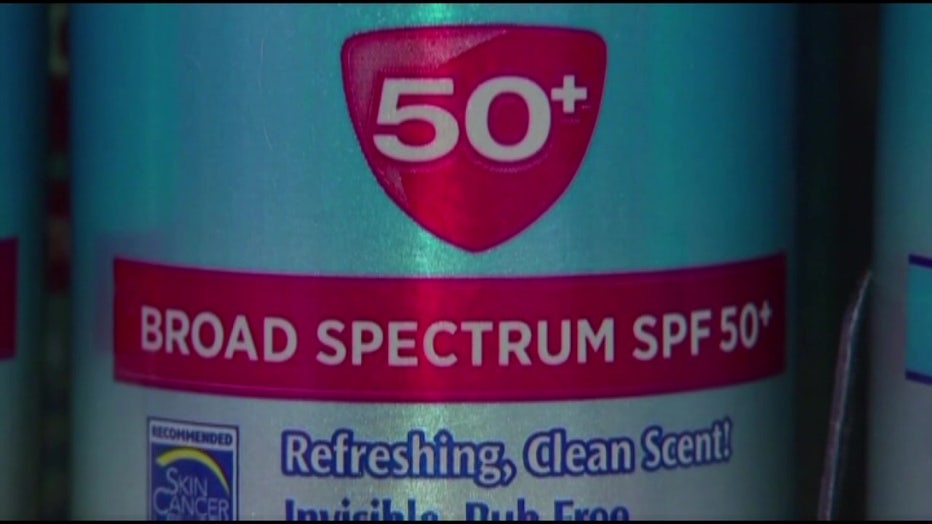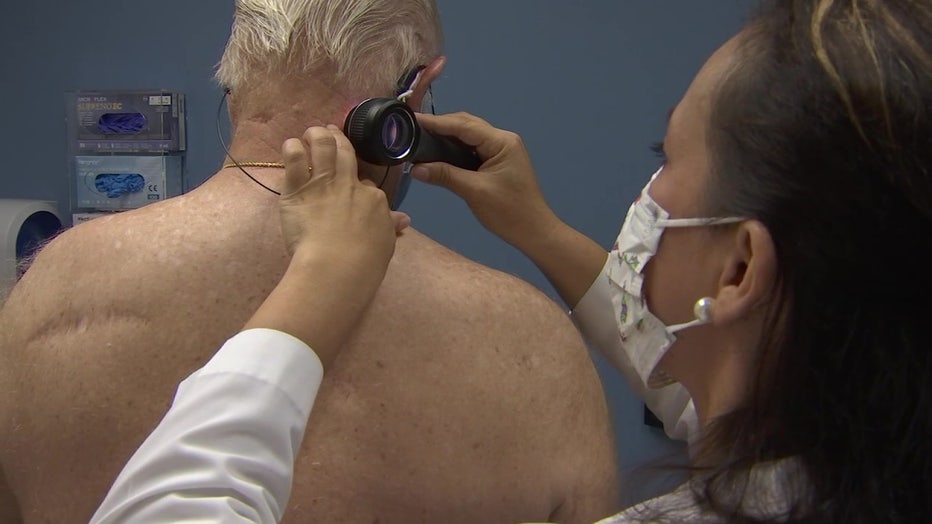USF dermatologist's guide for using sunscreen to prevent skin cancer
TAMPA, Fla. - The warmth of the sun can feel great, but it can also be damaging.
"Ultraviolet light causes mutation in the skin which can not only lead to skin cancer but can also lead to photoaging," said Dr. James Grichnik of USF Health Dermatology.
One thing to think about when you plan your outdoor time, is picking the right time of day. Dr. Grichnik recommends doing activities early in the day or later in the day to avoid harmful rays.
"The noon-day sun is when the sun is highest in the sky and the most amount of ultraviolet light gets through," he warned.
And then there's the key protection product of sunscreen.
"I prefer the physical blockers, the ones based on zinc oxide or titanium dioxide, they're more white in characteristic but they actually reflect the light away from the sun compared to the clear sunscreens which absorb light," shared Dr. Grichnik.

Using sunscreen is a good start but you have to make sure you're checking the number on your SPF. Dr. Grichnik recommends 30 or higher.
"That is because people tend to spread sunscreens relatively thin so if you start with a 30 it's going to be hard to spread it so thin that you're not going to get an effective protection from the sun," added the dermatologist.
Those spray sunscreens may be easy to put on but they’re not the best.
"I prefer not using the sprays. I know sprays are very convenient but often you can inhale a fair amount of that sunscreen so I tend to prefer not to use those," Dr. Grichnik said.

And certain sunscreens might be better for your face.
"If you sweat a lot and you want something for your face you might want to use more of a wax-based product, those that are in those little sticks that you can kind of put on and spread around," explained Dr. Grichnik.
Another layer of protection is clothing.
"Clothing by itself can really protect yourself from the sun so wearing appropriate clothing – hat, sunglasses – can make a big difference. If you have a tight weave fabric on and you hold it up to light and light doesn't get through it it's an effective sunscreen," he shared.
Don't forget about other areas like your head and ears.
"Ideally better to have a broad-brimmed hat that covers the ears, but yeah, put sunscreen on the back of the ears, back of the neck, arms. And if you can't see the areas, having someone else occasionally take a good look at you and just make sure there's not something growing in those areas that needs to be checked," Dr. Grichnik added.
And self-checks are crucial.
"Pay attention to your skin surface. If you have a spot that really doesn't match your others and its growing or changing, it's important to get those checked," he advised.

The Moffitt Cancer Center Mole Patrol will be hosting free skin, head, neck and oral cancer screenings on Saturday, July 31st from 9 a.m. - 3:30 p.m. at the Pier 60 Pavilion on Clearwater Beach.
LINK: For more information about protecting your skin visit moffitt.org.


